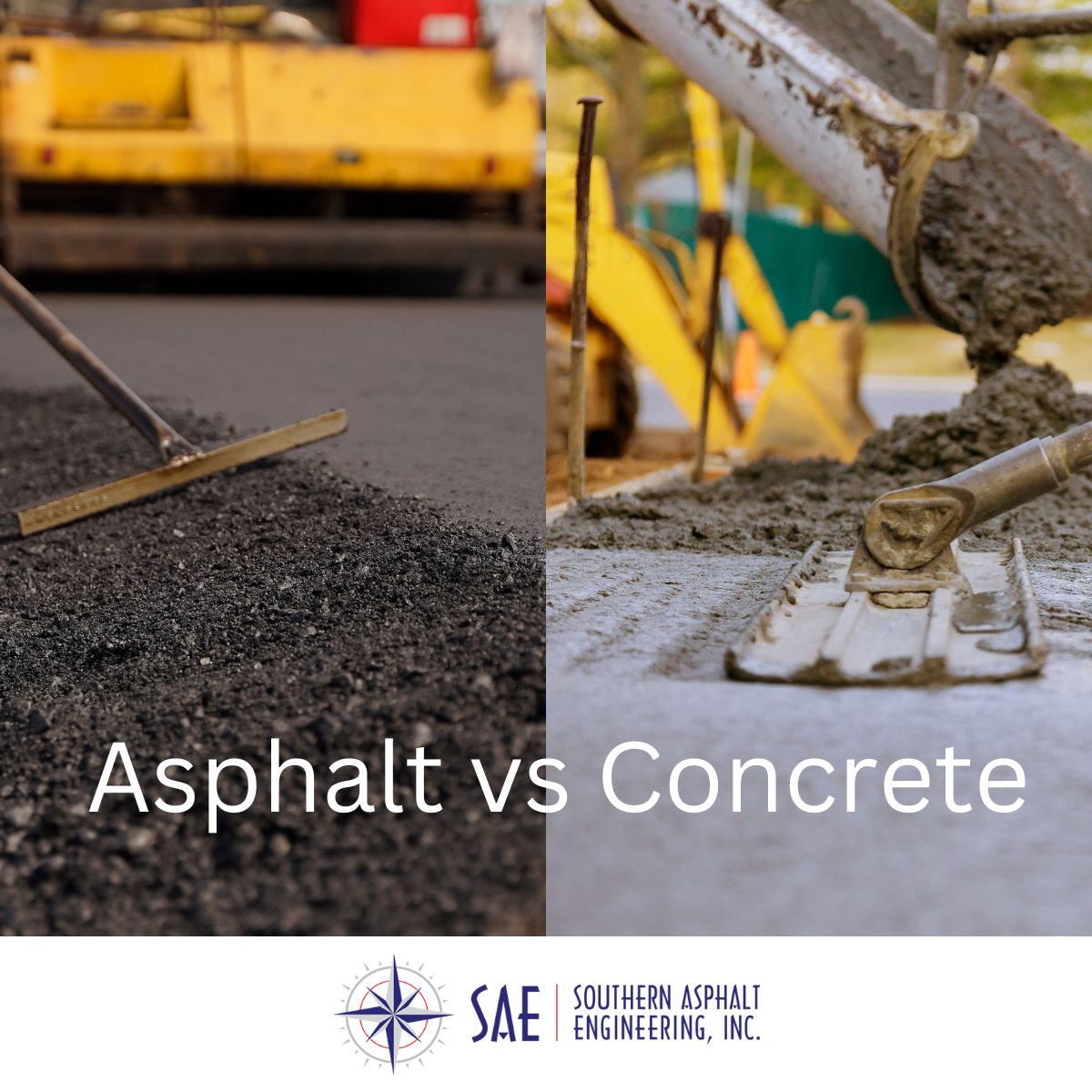Creating commercial parking lots in Miami requires careful decision-making, particularly selecting the most suitable paving material. Asphalt and concrete are the top contenders, each presenting unique strengths and weaknesses. Factors like durability, maintenance, aesthetic appeal, heat retention, and cost come into play when choosing the right one. This article sheds light on these aspects, emphasizing Miami’s distinct coastal environment to aid in your decision-making.
Insights into Asphalt and Concrete
Asphalt, derived from petroleum, offers a flexible surface, well-recognized for its smooth finish and typical black color. In contrast, combining cement, water, and aggregates, concrete provides a rigid surface famous for its strength and durability, commonly grayish-white with a slightly coarse texture.
Asphalt often stands out due to its fast installation and resilience to severe weather, albeit needing regular upkeep for optimal conditions. While concrete requires less maintenance, its curing time is more prolonged and might crack under heavy pressure.
Contrasting Asphalt and Concrete Parking Lots
Durability: Durability is paramount, considering Miami’s tropical monsoon climate. While typically robust, asphalt can soften in extreme heat and necessitates frequent resurfacing. Despite concrete’s vulnerability to cracking under heavy loads, it withstands Miami’s heat and rain commendably.
Maintenance: Asphalt parking lots necessitate regular seal-coating for maintaining weather resistance and traffic endurance. This aspect is noteworthy given Miami’s dynamic commercial environment. In contrast, concrete parking lots, with their superior load-bearing capacity, demand less routine maintenance.
Aesthetics: Aesthetic appeal is largely subjective. Asphalt provides a sleek, dark look that accentuates parking lot lines, while concrete’s lighter, crisp appearance can impart a professional aesthetic to your commercial property.
Heat Retention: Given Miami’s notorious heat, asphalt, due to its dark color, tends to retain more heat, making parking areas warmer. In contrast, the lighter-colored concrete reflects more sunlight, thus reducing heat absorption.
Environmental Impact: Asphalt can be recycled and reused, decreasing its environmental footprint. Concrete, although requiring more energy for production, has a longer lifespan, hence diminishing its environmental impact over time.
Cost Consideration Initial Costs: Asphalt is typically less costly to install than concrete, an appealing factor for businesses striving to reduce initial expenditure.
Maintenance Costs: Conversely, asphalt needs regular seal-coating every few years, which could increase the total cost. Concrete, albeit costlier initially, demands less upkeep, leading to potential long-term savings.
Lifetime Costs: The total expenditure for asphalt and concrete can be similar over their respective lifetimes. Maintenance expenses might balance the lower initial cost of asphalt, while lower maintenance costs and a longer lifespan could offset the higher initial cost of concrete.
The choice between asphalt and concrete for your commercial parking lot in Miami hinges on several factors. Asphalt provides the advantage of lower initial costs and quicker installation, but it requires more upkeep and retains more heat. On the other hand, concrete showcases superior durability, less heat absorption, and potentially lower long-term costs despite a higher upfront investment.
Considering your business’s unique requirements and long-term objectives is essential before deciding. Seeking advice from seasoned professionals ensures that you make the best decision for your commercial parking lot in Miami.
Ready for more insights or to initiate your commercial parking lot project in Miami? Reach out to Southern Asphalt Engineering today! With over 25 years of experience, our team is committed to guiding you through the process, guaranteeing a parking lot that aligns with your business needs and budget.
